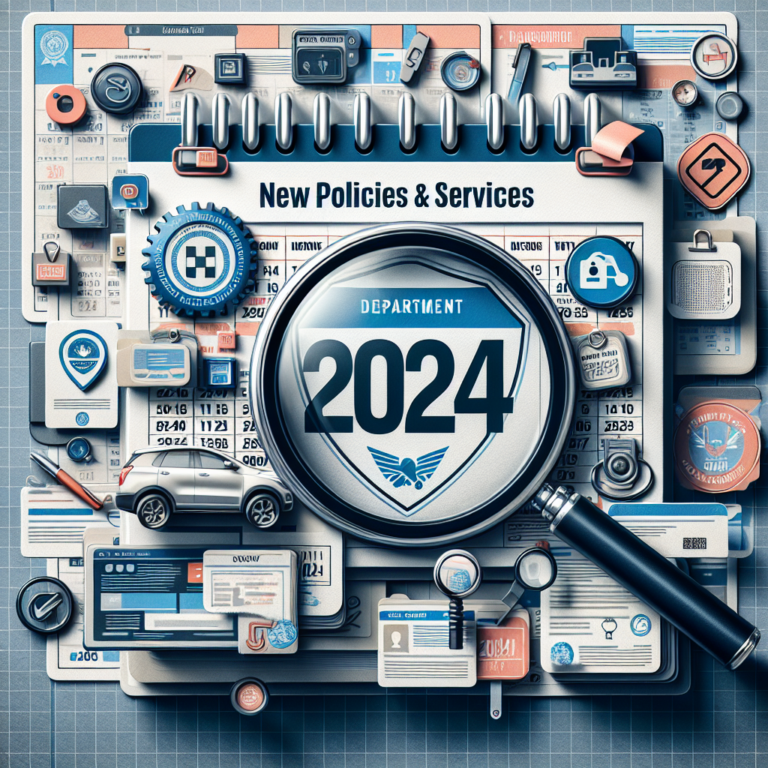As we step into a new year, the Department of Motor Vehicles (DMV) across the United States has introduced several significant changes in policies and services in 2024. From updated identification requirements to new technologies and customer service enhancements, these changes are designed to improve safety, efficiency, and accessibility for all drivers. This article serves as a comprehensive guide for what to expect at your local DMV.
Enhanced Identification Requirements
One of the most notable updates involves new identification requirements for obtaining a driver’s license or state ID. In compliance with federal regulations and to enhance security:
-
Real ID Compliance: Effective January 2024, individuals applying for a REAL ID must provide additional documentation, including proof of citizenship and residency. Acceptable documents may include a passport, birth certificate, and utility bills or bank statements with the applicant’s name and address.
- Digital ID Options: Many states are now adopting digital IDs, allowing drivers to store their identification information on their smartphones. This change improves convenience and speeds up the identification process during traffic stops or at boarding checkpoints.
Streamlined Application Processes
Recognizing the need for a more efficient system, DMVs have implemented several streamlined processes:
-
Online Services Expansion: Most DMVs now offer enhanced online services, allowing drivers to apply for licenses, renew registrations, and even schedule driving tests through user-friendly websites. This shift not only reduces wait times but also minimizes in-person visits, which is especially beneficial during health crises.
- Same-Day Service: Some states have begun offering same-day service options for certain transactions. This means that if you visit the DMV for a driver’s license or vehicle registration, you may be able to walk out with your documents in hand on the same day.
New Vehicle Registration Procedures
The vehicle registration process is also undergoing important changes:
-
Electronic Title Transfers: To expedite vehicle ownership changes, many states have introduced electronic title transfer systems, enabling buyers and sellers to complete transactions online. This change aims to simplify the process while maintaining record accuracy and security.
- Sustainability Initiatives: In response to environmental concerns, states are promoting electric and hybrid vehicles by offering reduced registration fees and incentives for those who choose eco-friendly automobiles. This initiative aligns with national goals to reduce carbon emissions.
Innovations in Customer Service
In an era where customer experience is paramount, DMVs are prioritizing service improvements:
-
Virtual Appointments: To further reduce lines and wait times, many DMVs are now allowing customers to schedule virtual appointments. This enables individuals to complete certain transactions without having to physically visit the DMV.
- Chatbots and AI Assistance: The implementation of AI-driven chatbots on DMV websites helps users quickly find information and resolve issues without the need for human intervention. These tools can answer common questions about licensing, registration, and road tests, providing immediate assistance at any time of day.
Emphasis on Driver Education and Safety
Safety remains a central focus for DMVs in 2024:
-
Mandatory Driver Education Updates: New policies require all new drivers to complete updated driver safety education programs that emphasize defensive driving techniques and the dangers of distracted driving.
- Road Safety Campaigns: Many states are launching public awareness campaigns aimed at reducing accidents and promoting safe driving practices. These initiatives are particularly important for younger drivers and those new to driving.
Accessibility Improvements
Recognizing the importance of inclusivity, DMVs are working to enhance accessibility:
-
Language Services: To accommodate their diverse populations, many DMVs are expanding language services to provide translation assistance for non-English speakers, ensuring that everyone can access DMV services without barriers.
- Assistive Technologies: New technologies designed to assist customers with disabilities are being integrated into DMV locations. Features may include hearing loops, texture paths, and ADA-compliant kiosks.
Conclusion
In 2024, changes at the DMV are poised to enhance the overall experience for drivers while maintaining a strong commitment to safety and accessibility. Whether you need to renew your license, register a new vehicle, or simply seek information, these updates aim to simplify processes and promote responsible driving. Stay informed about your state’s DMV changes and take full advantage of the new services available to make your interactions with the DMV as smooth as possible.


